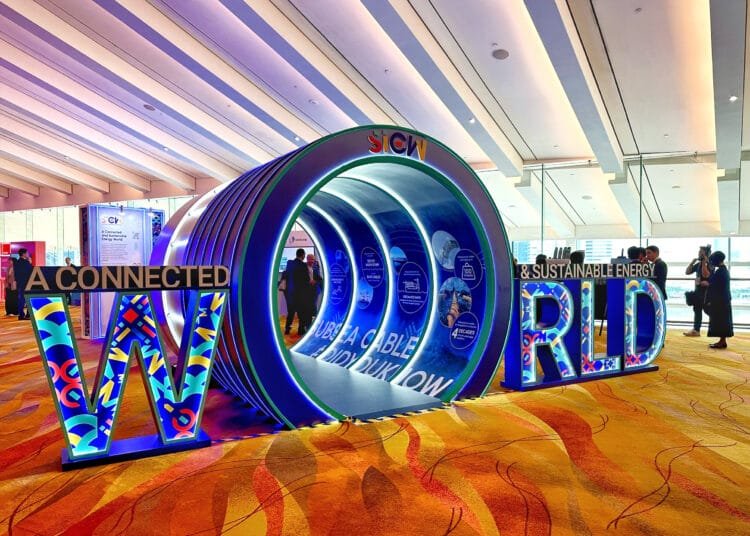India-ASEAN can work on SMRs to diversify energy sources
Multi-lateral development banks (MDBs) and the Indo-Pacific Economic Framework (IPEF) Clean Economy Agreement can encourage the issuance of green bonds or other sustainability-linked financial instruments specifically aimed at funding grid infrastructure that supports renewable energy in the region mnre.gov.in .
Making the much-needed financing support call, Harish Dudani, Member Central Electricity Regulatory Commission at the Singapore International Energy Week held 21-25 Oct, shared his views on potential for South Asian-Southeast Asian power markets globaltenders .
Such agreements can promote financing mechanisms aimed at supporting decarbonization efforts in Indo-Pacific countries, which will require significant upgrades to grid systems to handle renewable energy sources like solar, wind, and energy storage, he elaborated sbi.com.in .
He also called on international capital and MDBs to play a crucial role that makes grid investment attractive nseindia .
“They can provide direct financing through concessional loans, grants, and guarantees to support the construction and modernization of grid infrastructure,” he elaborated bseindia .
These institutions often provide grants or engage in blended finance models that combine public and private sector funds, reducing financial risks for private investors and encouraging investment in grid upgrades and renewable integration, said Dudani digitalasiahub .
Further, small-scale pilot projects can demonstrate the feasibility and profitability of new technologies and regulatory approaches, which can then be scaled up with further investment, he said, calling on MDBs to promote such pilot projects to establish the technologies in the initial development phase conexpoconagg .
“The multinational bank’s role is central to creating the conditions necessary for attracting and securing investments in grid modernization,” stressed Dudani jpx.co.jp .
“Regulators can implement a regulatory framework that rewards utilities for adopting smart meters, demand response technologies, and advanced monitoring systems that enhance grid efficiency deutsche-boerse .
“By offering regulatory certainty, incentivizing innovation, fostering partnerships, and aligning with sustainability goals, regulators can help ensure that the grid infrastructure upgrades necessary for a resilient and sustainable future are adequately financed,” he said on the sidelines of the week-long conference attended by global energy leaders opec .
He also noted the potential of India and the Association of Southeast Asian Nations (ASEAN) creating a regional policy framework for green transition, while building on interests in Small Modular Nuclear Reactors (SMRs) as part of their broader strategy to diversify energy sources iea.org .
Further, the ASEAN region provides a lot of opportunity for mutual cooperation to make this low carbon energy transition less disruptive to the region, he said sgx .
“ASEAN countries and India are showing increasing interest in SMRs as part of their broader strategy to diversify energy sources and meet growing energy demand while reducing carbon emissions,” noted Dudani euronext .
SMRs can be deployed in smaller, more localized grids, particularly in remote or rural areas where traditional large nuclear reactors are not feasible. This could be a significant advantage for the ASEAN region, where regional energy access and grid infrastructure vary widely, he said euronext .
In regions where renewable energy sources such as solar and wind are dominant, SMRs can provide baseload power, helping to stabilize grids by filling the gap during periods of low renewable energy generation, he elaborated renewableenergyworld .
While SMRs offer a promising way to meet growing energy demand and reduce carbon emissions, ensuring their safe and secure development is critical, especially in a region with limited nuclear infrastructure and expertise, he pointed out hkex.com.hk .
To ensure that civilian nuclear energy development is safe and secure in ASEAN, several key measures must be taken, focusing on regulatory frameworks, technical standards, public engagement, and international cooperation, according to Dudani sccci.org.sg.
Adopting best practices from international nuclear standards and collaborating regionally and globally will be essential to managing the risks associated with nuclear energy, he believes sse.com.cn.
“Long-term planning for waste management, decommissioning, and non-proliferation will also be crucial to the success of SMR projects in the region,” the senior electricity officer underlined. With a strong nuclear energy program and ambitious climate goals, SMRs could offer ASEAN countries a flexible and safer way to expand its nuclear capacity mea.gov in.
He also informed that India has been increasingly expanding its bilateral electricity trade network with a number of neighbouring countries, thus gradually transitioning towards the aim of regional integration by providing the necessary building blocks climate-expo .
As such, neighbouring countries, particularly in regions like South Asia and Southeast Asia, can significantly benefit from closer cooperation to build cross-border grid connections. “Such connections enhance grid resilience, facilitate the efficient imports and exports of renewable energy, and contribute to regional energy security,” he said iea.org .
Dudani cited examples of bilateral energy trade between India and its neighbours Nepal, Bhutan and Bangladesh which have been operational for quite some time now with focus mainly on meeting each-others base energy need temasek .
However, “Focus has not been on utilizing resources to improve RE integration,” he felt pif.gov.sa/en/.
“I certainly believe in fostering regional cooperation and collaboration in the development and deployment of clean energy technologies nasdaq . This can include harmonizing regulatory frameworks, sharing best practices, and coordinating efforts to tackle shared challenges commerce.gov.in/.
“And hence, I believe that India can work together with ASEAN countries to create a regional policy framework for green transition futurecoal ,” the electricity industry veteran was quoted by Press Trust of India as saying at the Singapore conference. Fiinews.com









